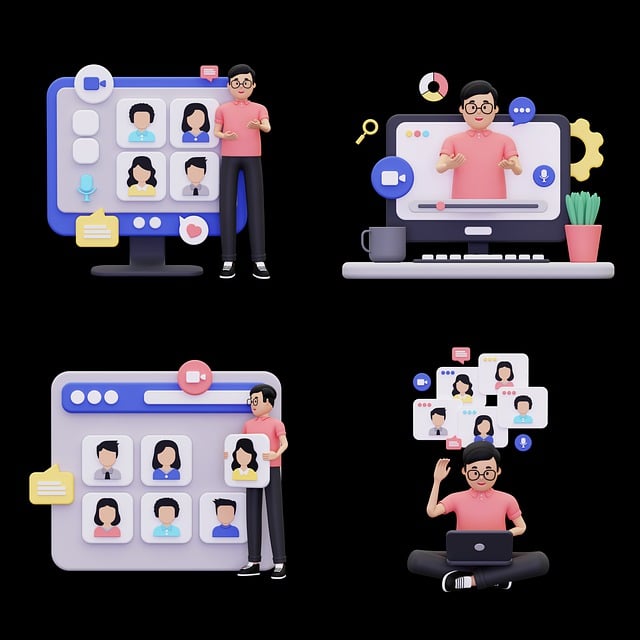Confidential computing revolutionizes humanitarian aid and journalism by providing a secure environment for data processing without compromising privacy or security. Aid workers benefit from real-time, private search environments that protect beneficiary information while enabling efficient decision-making in crises. Journalists can securely access confidential databases, gathering vital insights while respecting data protection regulations through encrypted search techniques like anonymous sources and consent. This technology enhances trust and allows for impactful storytelling in sensitive humanitarian sectors. Specifically, confidential computing empowers both aid workers and journalists to navigate complex digital environments discreetly and effectively.
In an era where information is power, journalists play a vital role in uncovering truths hidden behind sensitive data. This article explores the concept of Confidential Computing for Humanitarian Aid Workers, delving into its significance and unique applications. We’ll guide you through the ethical nuances and practical tools of stealthy search engine results, empowering journalists to navigate complex information landscapes discreetly. By understanding these techniques, reporters can ensure responsible access to critical data while maintaining the integrity of their investigations.
- Understanding Confidential Computing: A Journalist's Guide
- The Role of Stealthy Search in Humanitarian Aid Operations
- Ethical Considerations and Best Practices for Journalists
- Tools and Techniques for Uncovering Sensitive Information Discreetly
Understanding Confidential Computing: A Journalist's Guide

Confidential computing is a revolutionary approach that allows data processing to occur within secure, isolated environments—a concept particularly valuable for journalists seeking to uncover sensitive information. In the context of humanitarian aid work, this technology ensures that confidential data, such as private records or critical infrastructure details, remains protected even while being analyzed. By employing confidential computing, aid workers can process and share data without exposing it to potential threats, fostering a safer and more robust response to crises.
Journalists covering humanitarian issues can leverage this technology to gain insights into disaster management, resource allocation, and the impact of aid efforts. It enables them to work with sensitive data without compromising privacy or security. Understanding confidential computing allows journalists to navigate complex ethical dilemmas surrounding data access and protection while delivering impactful stories that shed light on global challenges.
The Role of Stealthy Search in Humanitarian Aid Operations

In the realm of humanitarian aid, time is of the essence, and access to accurate, real-time information can be a game-changer. Confidential computing plays a pivotal role here by enabling stealthy search capabilities tailored for aid workers on the ground. This technology ensures sensitive data remains secure while allowing rapid information retrieval, crucial for making critical decisions during crises.
By employing confidential computing, aid organizations can create private search environments where personnel can discreetly access vital knowledge without compromising the privacy and security of beneficiaries’ personal details. Such stealthy search engines empower humanitarians to navigate complex situations, from disaster response to conflict zones, by providing relevant insights promptly, fostering more effective and efficient aid distribution and decision-making processes.
Ethical Considerations and Best Practices for Journalists

When investigating sensitive topics, journalists face a delicate balance between uncovering crucial information and upholding ethical standards. In the age of digital transformation, Confidential Computing for Humanitarian Aid Workers offers powerful tools to navigate this landscape discreetly. By employing encrypted search techniques and secure data handling practices, journalists can access confidential databases without compromising privacy or security. This approach ensures that aid workers’ sensitive data remains protected while enabling reporters to gather vital insights.
Best practices dictate that journalists should always seek consent and maintain anonymity when dealing with individuals involved in humanitarian efforts. Additionally, transparency about the use of Confidential Computing techniques can enhance public trust. Journalists must also be mindful of legal boundaries, ensuring their work aligns with data protection regulations. Balancing these considerations allows reporters to deliver impactful stories while respecting the confidentiality required in the humanitarian sector.
Tools and Techniques for Uncovering Sensitive Information Discreetly

In the realm of investigative journalism, uncovering sensitive information requires a delicate balance between persistence and discretion. Journalists often need to access confidential data or communicate secretly with sources to reveal crucial stories. This is where Confidential Computing for Humanitarian Aid Workers comes into play as a game-changer. By leveraging specialized tools and techniques, journalists can navigate complex digital landscapes while maintaining the privacy and security of their inquiries.
One effective method is employing encrypted communication channels, ensuring all data exchanged remains shielded from prying eyes. Additionally, using anonymous search engines and proxy servers allows for stealthy searches, enabling journalists to gather intelligence without leaving detectable traces. These tools are particularly vital when investigating sensitive topics related to humanitarian aid, where the safety of sources and the confidentiality of operations are paramount.
Confidential computing is a powerful tool that allows journalists to access sensitive information while maintaining privacy and security. By employing stealthy search techniques, reporters can uncover crucial insights without compromising sources or data integrity. Understanding the ethical dimensions and utilizing the right tools are essential for responsible journalism in this digital age. For humanitarian aid workers, Confidential Computing for Humanitarian Aid Workers offers a means to efficiently process and share critical data while navigating sensitive environments, ultimately fostering more effective aid distribution and improved outcomes for affected communities.
